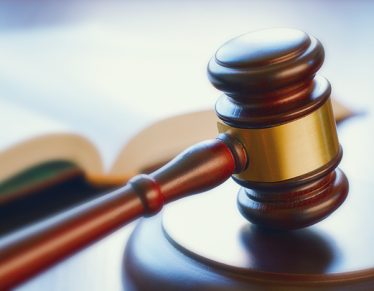In a seemingly Hollywood marriage, Elon Musk—the Chief Executive Officer of Tesla and SpaceX (“Mr. Musk”)—stated he is terminating his agreement to purchase Twitter, Inc. (“Twitter”) for $54.20 per share or about $44 billion after the two parties signed the agreement just two and a half months prior on April 25, 2022 (the “Merger Agreement”)[1]. In a similar theme, only twelve days elapsed between the offer and the signing of the Merger Agreement. Mr. Musk has been outspoken on the platform about the breakup.
Mr. Musk and his attorneys assert several claims against Twitter as a material breach of the Merger Agreement in their July 8, 2022 notice letter to Twitter (the “Termination Notice”).[2] First, Mr. Musk asserts that Twitter is withholding information specifically requested by his team during due diligence, relating to identifying and suspending spam accounts on the platform. Further asserting that the information Twitter did provide has come with strings attached, such as use limitations or other artificial formatting features, rendering some of the information minimally useful to his advisors. Second, Mr. Musk claims that the information Twitter did provide regarding the spam accounts on the platform indicates they dramatically understated the proportion of those accounts on the platform. Finally, Mr. Musk asserts Twitter breached the Merger Agreement by firing two key, high-ranking employees, as well as announcing a layoff of a third of its talent acquisition team. Mr. Musk claims this violates Section 6.1 of the Merger Agreement, requiring Twitter to seek and obtain consent before deviating from its obligation to conduct its business in the ordinary course.
Twitter claims that Mr. Musk is attempting to terminate the Merger Agreement because market conditions have deteriorated, and the deal is no longer lucrative for his interests. Tesla’s stock, in which Mr. Musk was to draw upon to help finance the deal, declined just over 30% from the signing of the Merger Agreement to the Termination Notice. Further, the value of Twitter’s stock declined over 30% below the price Mr. Musk agreed to acquire the company for per share. This puts Twitter’s board of directors in a unique position where they need to ensure the closure of the deal, as a fiduciary duty to Twitter’s shareholders, as the contract price is 30% higher than the market price for the stock.
In an effort by Twitter to force Mr. Musk to go through with the Merger Agreement, the two parties will meet in a courtroom in Delaware, in a little-known venue for corporate battles: Delaware’s Court of Chancery.
The Courts of Chancery
Created in 1792, the Court of Chancery was established as a court of equity, allowing for more flexible resolutions than the law formally provided. Today, Delaware’s Chancery Court has one chancellor, who is the chief judge, and six vice chancellors. The Governor of Delaware nominates the chancellor and vice chancellors, who must be confirmed by the State Senate to serve terms of 12 years. Delaware’s Court of Chancery, the broad corporate statue, and body of caselaw is the reason why more than 1.8 million businesses, and two-thirds of the Fortune 500 companies, are incorporated in Delaware. Those reasons are also why many contracts name Delaware in their choice of law provisions. As opposed to standard state courts across the country, Delaware’s Court of Chancery has expertise in corporate law, hearing many of these cases throughout the year, which makes corporate legal disputes more predictable.
Cases in the Court of Chancery typically follow a similar process to most civil courts in other jurisdictions. Both sides may file a motion for summary judgement, asking the court to rule on all or parts of the case without going to trial. If the case goes to trial, the judge determines the facts based on evidence provided through records and testimonies and issues a ruling.
The most notable power of the Court is its ability to issue injunctions and temporary restraining orders and is most frequently exercised in corporate differences over mergers or acquisitions. A typical merger dispute will see a party seek temporary relief to preserve the status quo of the business until a trial can occur.
The Future of the Legal Battle
There are several possible outcomes for Mr. Musk and Twitter regarding their case in Delaware’s Court of Chancery.
The first possible outcome is the court can force Mr. Musk to buy Twitter at the price contemplated in the Merger Agreement. Essentially, the Court would be enforcing the rule of law. The Court can issue a finding that there has not been a material breach of the Merger Agreement by Twitter. Enforcing the rule of law sends a message to other acquirers that they cannot simply back out of contracts they agreed to. The issue with the case going all the way though trial is that it is time consuming and can have a severe detriment to the stock value of Twitter, and Mr. Musk individually by virtue of his companies. Further, the court would have a lot of administrative responsibilities in enforcing the deal to go through, which courts generally try to avoid.
The second possible outcome is that Mr. Musk could be allowed to walk away from the deal and pay a reverse termination fee of 1 Billion Dollars as contemplated in Section 8 of the Merger Agreement (the “Termination Fee”). If the court finds that Twitter was in breach of the contract, as contemplated in the Termination Notice, Mr. Musk would be allowed to walk away from the deal, in exchange for paying the Termination Fee. There are several scenarios enumerated in the Merger Agreement that would allow Mr. Musk to walk away, such as Twitter withholding due diligence information, or not continuing to conduct business in the ordinary course. That being said, the Termination Fee does not allow Mr. Musk to simply pay the fee and walk away for any or no reason at all. There still must be a valid reason, enumerated in the contract or law, to walk away.
The final, and most likely outcome is the two parties could sit down and renegotiate a lower price reflecting the market conditions. Often parties attempt to terminate an agreement as a negotiation tactic in response to market conditions. If the parties can agree to an amendment to the Merger Agreement, they would both save significant amounts of time and money than dragging out the dispute.
In such, the forthcoming legal battle between Mr. Musk and Twitter in Delaware’s Court of Chancery will be enough entertainment to keep legal scholars and Twitter users on the edge of their seats for months to come as this divorce is far from over. Stay tuned for the expediated five-day trial in October 2022.
[1] Twitter, Inc. United States Securities and Exchange Commission form 8-K, April 25, 2022.
[2] Mike Ringler, Letter to Vijaya Gadde, Chief Legal Officer of Twitter, July 8, 2022.







